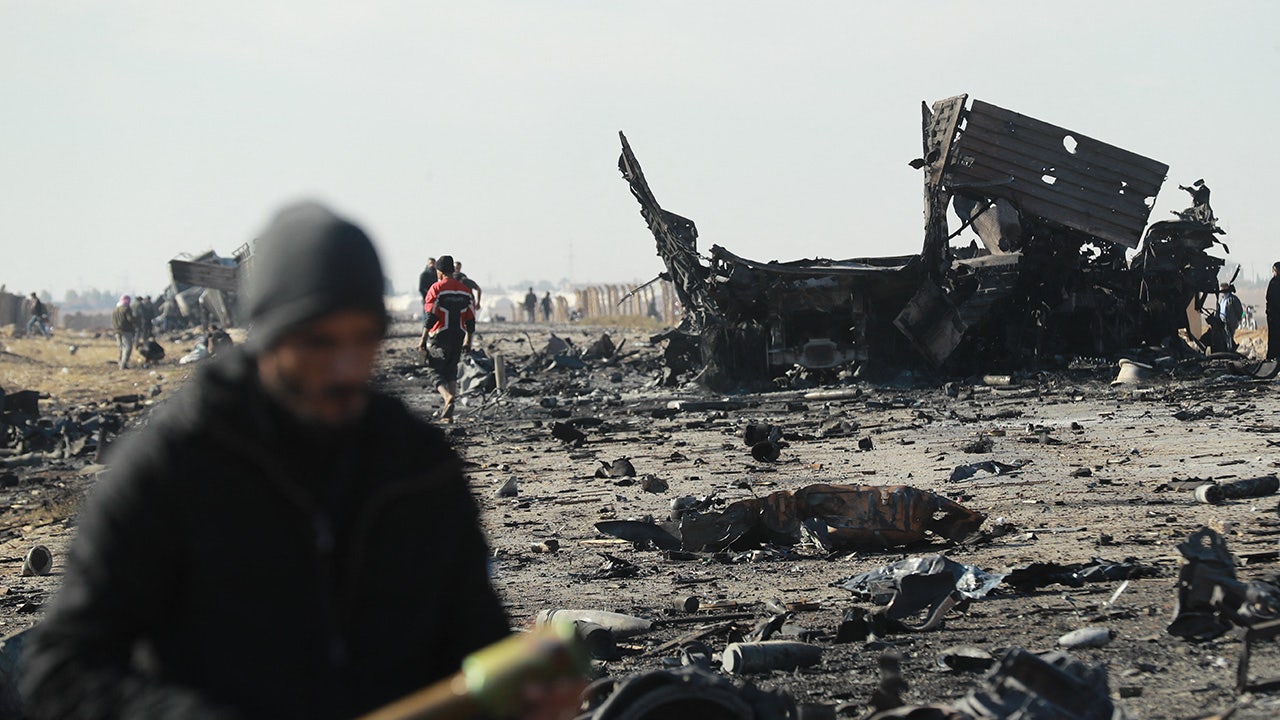Netanyahu seeks to establish ties with Syria but warns Israel will attack if it poses a threat.
Over 350 aerial strikes were carried out by Israel against Syrian military targets.

Benjamin Netanyahu, the Israeli Prime Minister, stated on Tuesday that he intends to establish ties with the new government in Syria following the removal of Bashar al-Assad. However, he cautioned that Israel will not hesitate to launch an attack on Syria if it poses a threat.
Netanyahu stated in a live address that relations with the new regime in Syria are desired, but if the regime permits Iran to re-establish itself in Syria, transfer Iranian weapons to Hezbollah, or attack Israel, a strong response will be implemented, and a heavy price will be exacted.
"The fate of the previous regime will befall this regime as well."

Now that rebel forces control Damascus, it is uncertain who will assume leadership of Syria and what the new government will look like.
On Monday night, Israel carried out a large-scale attack on Syrian military targets, including two naval bases, the Al-Bayda port and the Latakia port, where 15 Syrian naval vessels were anchored, according to the IDF.
Over 350 aerial strikes were carried out by manned aircraft flying hundreds of hours over Syrian airspace, along with fighter jets, according to the IDF.
Israel announced that a variety of targets were hit, including anti-aircraft batteries, Syrian Air Force airfields, and numerous weapons depots in Damascus, Homs, Tartus, Latakia, and Palmyra that contained advanced weaponry such as ballistic and cruise missiles, UAVs, fighter jets, attack helicopters, and tanks.

Netanyahu argued that the strikes were comparable to Britain's actions during World War II when they bombed a French fleet at the Algerian port of Mers-el-Kébir to prevent the ships from falling into Nazi hands.
The United Nations condemned Israel's overnight strikes and military encroachment beyond the Golan Heights and into a demilitarized buffer zone, but it is unclear if any casualties were inflicted.
"Geir Pedersen, the U.N. Special Envoy for Syria, has expressed concern over Israeli movements and bombardments into Syrian territory, stating that this behavior is "troubling" and needs to stop."
"He emphasized the importance of stopping Israeli attacks and resolving conflicts in the northeast and between armed groups."
The Golan Heights, a disputed area seized by Israel in 1967 and internationally recognized as part of Syria, received criticism from the international community after a military contingent was sent beyond its borders this week.

Stéphane Dujarric, the U.N. spokesperson, stated on Tuesday that "We're against these types of attacks." He added, "I think this is a turning point for Syria." However, he cautioned that "It should not be used by its neighbors to encroach on the territory of Syria."
In his speech, Netanyahu reiterated Israel's stance and stated, "We have no intention of meddling in Syria's internal affairs, but we are determined to take the necessary actions to safeguard our security."
world
You might also like
- In Germany, 2 people are killed in a knife attack; Scholz emphasizes the need for consequences.
- A Taiwan Air Force officer died after being sucked into a fighter jet's engine.
- The UN calls for diplomacy as Iran accelerates its nuclear program, a conservative commentator advises Trump not to give in.
- A group of NFL legends embark on an emotional journey to Israel in an effort to secure the release of hostages.
- Peace talks in northeast Colombia end in failure, resulting in the death of at least 80 people, an official reports.



















